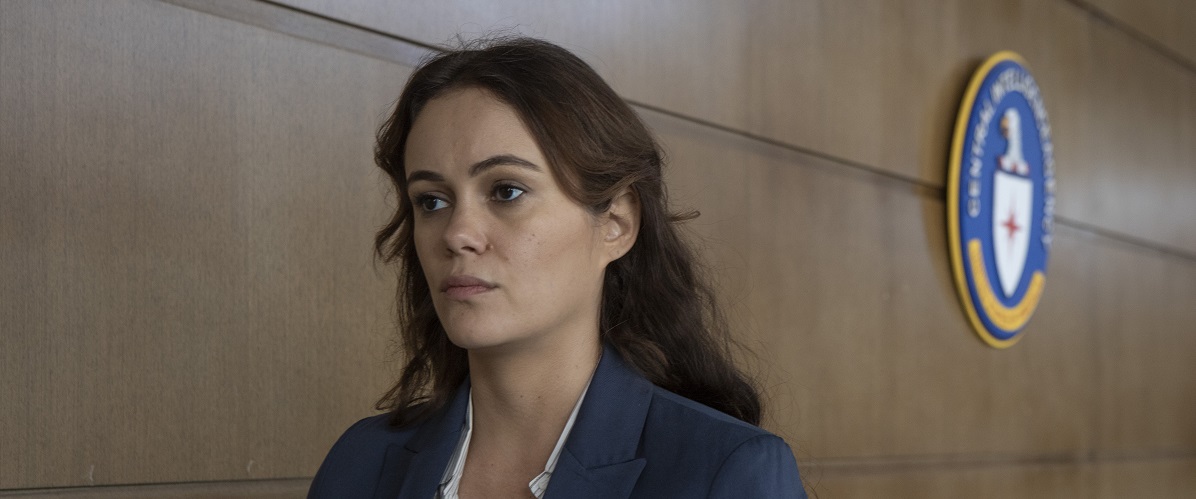Creators : Greg BarkerAvi IssacharoffLior Raz
Stars : Navid NegahbanAmir KhouryNed Bellamy
Before Osama receptacle Loaded cut out an especially venomous space in the famous Western creative mind as the boogeyman for Islamic dread, Imad Mughniyeh basically composed the playbook. During the 1980s, the cryptic Hezbollah pioneer established Lebanon’s Islamic Jihad Association, himself a “phantom” remembered to be liable for a line of hostile to American bombings and kidnappings all through the locale.
It was exclusively in 2008 that a vehicle bombarding (purportedly organized between the CIA and Mossad) took his life. Kickoff’s new miniseries, “Phantoms of Beirut,” offers up a “Zero Dim Thirty”- esque quest for Mughniyeh, crossing numerous many years and points of view. In any case, in shuffling these perspectives, it helpfully neglects to make any of them especially fascinating, bringing about an unnatural covert operative show that will not raise itself above simple procedure.Created by Avi Issacharoff and Lior Raz, “Phantoms of Beirut” starts each episode with a similar disclaimer: “This is an imaginary record of profoundly explored occasions.” This exploration, inquisitively, is borne out in talking head meets that intersperse the renown dramatization activity, with previous CIA agents, writers, and Mossad spymasters focusing on the meaning of Mughniyeh’s rule of fear.
He’s portrayed as an “flat out Ambitious genius.” The show’s titles present him belaboredly as “Imad Mughniyeh, Also known as Radwan, Also known as The Phantom. Mossad Target. CIA Fixation.” This is a terrible, terrible fella, and the show implies to fastidiously follow the chivalrous endeavors of the CIA and Mossad to bring him down. Like Issacharoff and Raz’s past series, Netflix’s Israeli military spine chiller “Fauda,” you can see the endeavors at fairness here.
We invest as much energy with Mughniyeh, both as an optimistic twentysomething (Amir Khoury) and protected moderately aged man (Hisham Suleiman), and his needs/needs as we do the dozen CIA and Mossad authorities either attempting to endure him or chase him down. He’s driven, energetic, and a conceived pioneer; a large part of the primary episode is committed to watching him persuade his most memorable self destruction plane to carry out the thing. “You press the button and go to heaven,” he murmurs to his companion, currently headed to outrage by his family’s passing because of Israeli bombs.
Yet, however much the show endeavors to acculturate Mughniyeh and comprehend his inspirations, it battles to keep up that force on the opposite side of the situation. Maybe that is a direct result of the sheer number of individuals entrusted with tracking down him throughout the long term; there are three arrangements of heroes more than four episodes, not even one of them getting much screentime to loan their characters everything except the broadest strokes.
Whether it’s Dermot Mulroney’s gregarious Robert Ames, working arrangements to attempt to find a two-state arrangement, Garret Dillahunt’s hounded and bound CIA fixer William Buckley, or Dina Shihabi’s at last effective employable Lena, there’s little meat on their bones other than “we should track down this person.” Ideas of more profound inspirations, similar to Lena’s craving to show what her can do notwithstanding acting naturally a Lebanese Shia with a cousin in Hezbollah, never go past that.
Chief Greg Barker, a producer known for narratives like “Sergio” and “Phantoms of Rwanda,” appears to be too stalled in strategy to cause the relational show to sing with a specific key. There’s just no opportunity to treat Lena’s internal clash, or her maturing dynamic with Mossad usable Teddy (Iddo Goldberg, doing the most with restricted material), with much gravity; significantly more established Mughniyeh’s brushes with new sentiment feel like repetition endeavors to adapt him.
They feel like brief, repetition signals towards the humankind in everybody, even as Barker occupies the excess time with genuine figures focusing on the tremendous idea of Mughniyeh’s demonstrations. (Indeed, even those sections get tremendously nosy; they don’t add a lot of past an unclear quality of power and bring any feeling of sensational energy to an abrupt halt.) More than anything, “Phantoms of Beirut” needs to have it both ways; it shrugs toward compassion toward the inspirations and mentalities of individuals like Mughniyeh yet never dives too profoundly into the more extensive international strategy climate that drove these individuals to this urgent point.
It feels out and out dreary to envision this rich, full life for Mughniyeh, with a spouse and kids and his own portion of inward clash about individuals he’s shipping off their destruction — just to have genuine CIA agents pivot and stress exactly how terrible of a person he is. There’s a method for getting everything done as well as possible, however a joyous takedown of a psychological militant brains most likely needn’t bother with this much prelude on one or the other side of the terminating line.
The spycraft is noteworthy and all, and there’s a lot in “Phantoms of Beirut” for people who love watching fellows wind red yarn around guides or gaze at banks of screens showing surveillance camera film. However, everything feels like such an inevitable end product, four hours spent trusting that a bomb will go off, with little of import said about the intricacies of the Center East clash. Without a doubt, Mughniyeh is a beast; yet which job did our legends play in making him in any case? It’s an inquiry “Phantoms of Beirut” just lacks the opportunity to reply.
![]()
![]()


